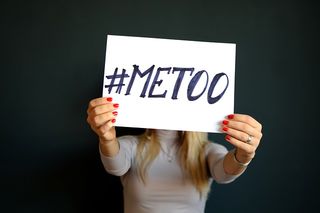Gaslighting
Sexual Harassment Can Drive You Crazy
How Weinstein and others gaslight their targets.
Posted November 21, 2017

By Sargam Jain, MD
(This is the part 2 of a two-part series on the impact of sexual harassment on mental health. Read part 1 here.)
Sexual harassment can make you crazy. It induces a form of psychosis in its target. By that, I mean, it makes you doubt your perceptions and experience. The narratives of the many women who have spoken about their experiences with Harvey Weinstein and James Toback, and many others, illustrate how these men steered their targets into isolated places with career promises that turned out to be false. These women assumed they were participating in a shared professional reality; unwanted sexual advances were never a part of the deal. In this modern era, the casting couch, they believed, no longer existed. These men knowingly manipulated this reality, expecting that the confusion and shame would keep victims silent.
Manipulating reality
In Glenn Whipp’s story for the LA Times on James Toback, multiple women described being told, “This is how it’s done” or that they “weren’t serious about their craft” if they refused his advances. Toback reframed the woman’s discomfort as ‘their problem’ while utterly denying the repellence of his behavior.
In an interview with the New York Times, Gwyneth Paltrow recalls normalizing a hotel room meeting with Weinstein because “it’s on the fax, it’s from C.A.A. [Creative Artists Agency]” and feeling “stunned” because someone she had seen as a mentor had been so inappropriate. In the same piece, another actress, Katherine Kendall recalls she didn’t tell anyone because “I’ll never work again and no one is going to care or believe me.”
In Jodi Kantor and Megan Twohey’s story about Harvey Weinstein’s payoffs to sexual harassment accusers, Laura Madden, a former employee, states, “You constantly question yourself—am I the problem?” Like Toback, Weinstein also transmitted the feeling that the harassment and assault was normal and covered his actions in the cloak of professionalism.
Doubting one’s own reality
In addition to the fear of retaliation, the confusion of doubting one’s own reality explains the reluctance of sexual harassment survivors to come forward. In doing so, the world becomes a threatening place that cannot be expected to provide security or authenticity. This sense is heightened if costars, lawyers, agents, assistants, executives, and law enforcement also deny the victim’s reality through silence, non-disclosure agreements or refusal to prosecute sexual assault. As Jia Tolentino notes in the New Yorker, “When you are a young woman, and you believe in your own worth, personhood, and agency, it can be hard to understand that an older man who takes an interest in you does not necessarily share these beliefs.”
It is not surprising that several women assaulted by Weinstein and Toback left the film industry altogether.
“Gaslighting” can feel like psychosis
In the beginning, babies do not distinguish between internal and external reality. An important role of the primary caregiver is to help the child translate what is internal from what is external. This contributes to the child’s sense of mastery and security in the world, (I understand how to be in the world), authenticity (the world sees me as I want to be seen) and efficacy (the world can give me what I need).
An important part of healthy relationships is the assumption of a shared reality. When we encounter another person, we assume the other person is on the same page about what is going on between and around the two of us. For example, when a teacher asks a student to stay after class to discuss something, the student assumes the teacher is interested in their education. For closeness or intimacy to occur, there first needs to be a trust that the other person wants to understand your point of view.
An inability to trust reality is a feature of psychosis. A psychotic person suffering from schizophrenia cannot always distinguish external reality from delusions and hallucinations; partly because of biological processes occurring in their own brains. It produces a disconnect from the larger world, and for this reason, psychotic people often feel isolated, sad and lonely.
On the other hand, an artificial psychosis can be produced when a person is disconnected from reality through the manipulations of another person. This is seen in the phenomenon of “gaslighting,” popularized by the movie “Gaslight,” the 1944 film starring Ingrid Bergman and Charles Boyer. In this movie, Gregory manipulates his wife Paula into believing that she is going insane. He does this by isolating her and convincing her that she is imagining things, like the flickering of the home’s gaslights, for which he is actually responsible. This makes Paula doubt her own sense of reality and she feels she is going crazy.
At the end of “Gaslight,” Paula recovers her sanity when a concerned constable checking on her well-being affirms that she is really seeing flickering gaslights.
This is why the “whisper network,” an informal information channel used by women to warn of predatory male behavior and described by Jia Tolentino of the New Yorker has such power. It offers an alternate narrative, one that reaffirms the reality of the sexual harassment victim and perhaps eases the trauma that comes from having one’s reality turned upside down. One can take some reassurance in the fact that they correctly perceive the world, and that they are more than the demeaned sexualized object into which they were reduced by their harasser.
With the ongoing media coverage, heightened awareness, and the hashtag #metoo perhaps victims of sexual harassment can feel more secure in their perceptions that something really wrong happened to them and as a result will feel less crazy.
About the Author: Sargam Jain is a psychiatrist and psychotherapist in private practice in New York City. She is on the faculty of Weill Cornell Medical College, where she teaches community psychiatry and is an advanced candidate in adult psychoanalysis at the Columbia University Center for Psychoanalytic Training and Research. She is also a member of the United Nations Committee of the International Psychoanalytical Association, which aims to interact with the U.N. on mental health issues and translate psychoanalysis into practical help for victims of violence and war.




